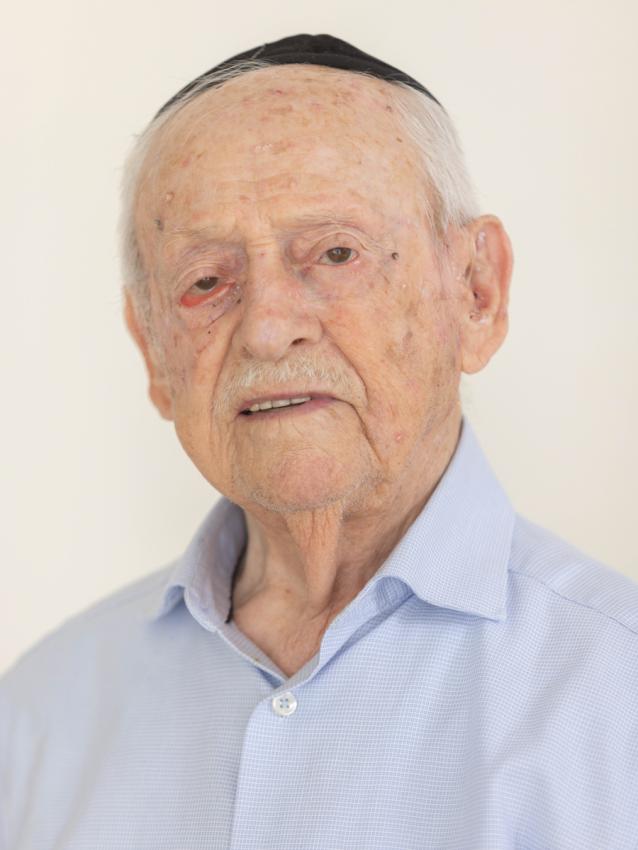Born Michael Brownfeld in 1932 in Kraków, Poland, Michael was the youngest of his Hasidic family’s eight children. His father Haim was a merchant who led the prayers in the court of the Admor (spiritual leader) of Sanz, and his mother Nechama was a housewife.
After the occupation of Kraków by the Germans in September 1939, the occupiers abused Haim and tore off his beard and sidelocks. In 1941, the family was incarcerated in the Kraków ghetto before they were transferred to Międzyrzec Podlaski, where they lived in a stable due to lack of funds.
When a typhus epidemic broke out there due to the overcrowding, contamination, and hunger, almost all of the Brownfelds contracted the disease. Haim succumbed to typhus, followed two weeks later by Nechama, who died in the synagogue where the patients were being housed. Michael discovered that she had passed away after overhearing a random conversation in the street.
Posing as a Christian, Michael’s cousin Bronka came to Międzyrzec Podlaski and smuggled Michael and his siblings to her hometown of Brzesko.
When rumors of the area’s impending liquidation by the Germans started to circulate, Michael fled to the Bochnia ghetto and then to Kraków upon hearing about an upcoming Aktion. However, unable to enter the Kraków ghetto, he returned to the ghetto in Bochnia. From there, he fled southward to the town of Piwniczna together with his brother Elimeleh and their sister Aliza. They embarked on a grueling journey of almost 200 kilometers on foot, eventually reaching the city of Košice in Hungary (today Slovakia).
A few months later, the three siblings arrived in Budapest. Passing himself off as a Christian, Michael went to the Polish Consulate to obtain a document allowing freedom of movement to Poles. In April 1944, Michael, Elimeleh and Aliza escaped to Nagyvárad where they were confined in the local ghetto. Managing to smuggle themselves out of the ghetto, they reached their aunt Dvora, who lived in the city. From there, they fled to Romania but were caught and thrown into prison. Thanks to a bribe paid by a local Jew, the jailers released Michael and his siblings, and they went to Arad and then to Bucharest.
The three youngsters succeeded in boarding a boat that had anchored in the Port of Constanța in Romania and sailed to Istanbul in the hold. There, they boarded a train and reached Eretz Israel (Mandatory Palestine) via Syria and Lebanon in July 1944. They were arrested by the British and imprisoned in the Atlit detention camp. Upon their release, Michael was taken in by the Faltins, who fostered him and welcomed him with warmth and love.
Michael studied in the Agudat Yisrael educational institution in Magdiel, became a counsellor for young Holocaust survivors, and enlisted in the Israel Defense Forces. He held various command positions in the Israeli army and served as head of burial matters during the Yom Kippur War.
After twenty-five years in the IDF, he retired with the rank of lieutenant-colonel. During his military service, he was requested to Hebraize his family name and became Michael Bar-On.
After his retirement from the IDF, Michael was appointed deputy director of Administration and Personnel at Bar-Ilan University. Michael and his wife Haya have three children, and many grandchildren and great-grandchildren.


